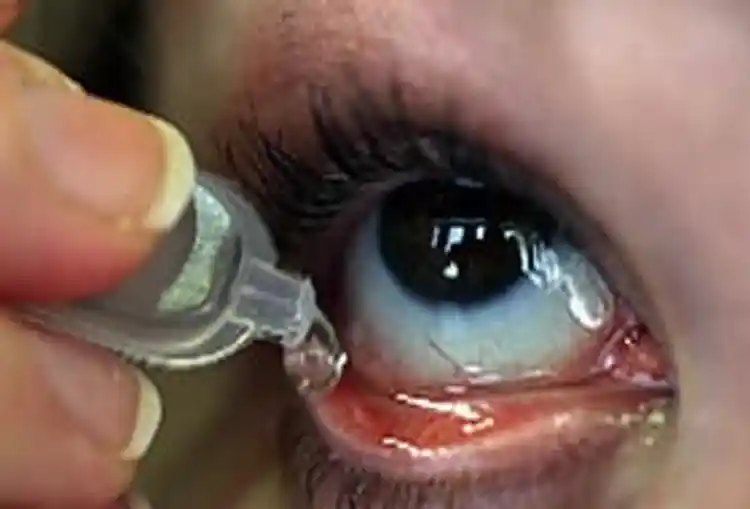How to Soothe Dry Eyes

Hide Video Transcript
Video Transcript
Julia Haller, MD
A dry eye is a constellation of different symptoms and it has a host of different causes. …and you need to have a moist eye in order to see—it just has to be perfectly moist with a thin film of tear on it…and I tell people…sometimes that's hard for them to understand… but if you think about how the inside of your mouth has to feel to feel normal, and you think how it feels when it dries out, that's the difference between a normally moist eye and a dry eye… The most common early symptom is people noticing that they have an almost a sandy feeling in the eye. They notice… the sensation when the eye dries out as you blink almost feels like there's something in the eye. And then, and this is very confusing when you try to explain it to people, but what happens when the eye gets a little bit dry is that the body compensates and starts adding extra tears in… And so people can actually have reflex tearing.
People with dry eyes often find they can't tolerate contact lenses and people who wear contact lenses often find that dry eyes bother them more when they've got the contact lens in than if they're just wearing their glasses.
Michael Bloom, OD
… a contact lens, especially a soft contact lens, you know has to stay hydrated…it has water in it to function. The contact lens is like a sponge on their eye…It's sort of sucking the moisture out of their eyes. They wear it throughout the day and can create the symptoms of dry eye easily. Environmental factors are a big problem—a big underlying cause of dry eye.
Julia Haller, MD
So for example, if you're working in an extremely dry environment…your house has forced heat…You notice that it's only in the winter that it bothers you because you've got forced heat in the house and it's drying things out, you can certainly try getting a humidifier—trying to optimize the moisture content in the air around you. Michael Bloom, OD
Sometimes patients have metabolic changes, or hormonal changes. Dry eye is definitely more prevalent in women who go through menopause… Julia Haller, MD
One of the most common things of course is systemic diseases. So in people who, for example have inflammatory disease like rheumatoid arthritis or lupus, some…many of these people will also get an autoimmune inflammation that damages some of the glands that make components of tears and they'll have very dry eyes. Another thing is medication. You know people who are on diuretics, for example for their high blood pressure may be very dry and all there mucus membranes get dry, including those in the eye… and if the eye gets too dry it's not only uncomfortable, but the vision starts to go down and it can be dangerous because a very dry, desiccated eye is more vulnerable to bacterial incursion or other types of infections that can cause serious problems.
Michael Bloom, OD
Obviously these patients were prescribed this medicine for a very specific medical reason and so with the expectation that we can't alter their medical regimen then we just try and work around that. We look at nutritional effects. If people are staying hydrated longer…there are benefits of, say, fish oil, omega 3s… One of the first and safe and least invasive things we do for treating dry eye is just recommending these artificial tear drops.
Julia Haller, MD
We recommend drops that just gently lubricate and add a little extra moisture to the eye. Now there are also some drops that are available that are anti-inflammatory. So if you have a condition that is actually causing inflammation in some of the glands that make the substances that contribute to your tear film, then some of these anti-inflammatory drops can work too. Michael Bloom, OD
…and then there are products that are meant for chronic long-term treatment of dry eye that we would address if all these other steps don't work or if we need to add that to the long-term treatment plan—if we really feel like this is a …a long-term dry eye problem. 